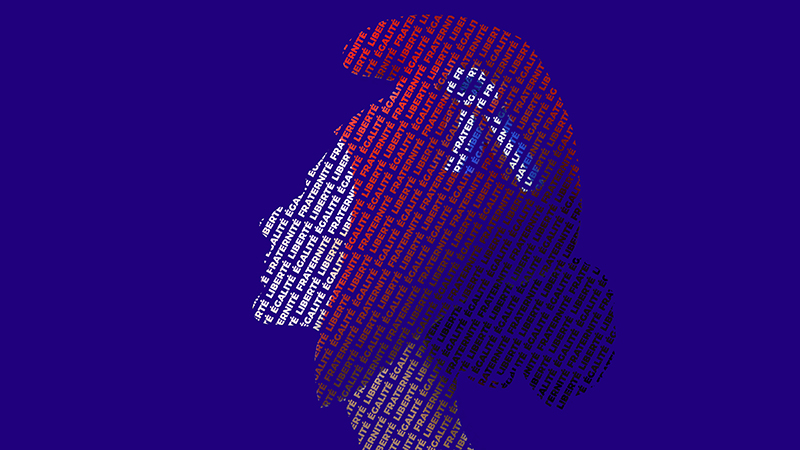It is not clear that the result in the French election has settled nerves over the country’s outlook. The country may have swerved the immediate threat of a far right majority in parliament, but the three way split makes it near-impossible to tackle some of France’s most intractable problems. Will it matter for financial markets?
The second round of parliamentary elections produced no clear majority in the National Assembly – with a near-even split between the left, centre and the far right. The prevailing view is that France is now ungovernable, with no mandate on either side. Prime minister Gabriel Attal of President Macron’s Renaissance party will stay on in a caretaker role to see the country through the Olympics, but will step down after the summer. Macron will almost certainly appoint a prime minister from the left alliance NFP, which won the most seats.
See also: How will UK markets be influenced by Rachel Reeves and the Labour Party?
This horse-trading and uncertainty wouldn’t necessarily be a problem were France not teetering on the brink of a financial crisis. Its debt now sits at over 110% of GDP (source: Trading Economics), while the annual fiscal deficit is over 5.5%. The EU has warned France to cut its deficit by €15bn or face sanctions. Under the Eurozone’s Excessive Deficit Procedure, EU member states must keep their deficit below 3% of GDP. Against this backdrop, there is a real need to take difficult decisions to address the deficit, but that has become increasingly unlikely amid political stalemate.
Azad Zangana, senior European economist and strategist at Schroders, says: “The government’s Stability Programme’s stated plans are for the deficit to fall to 4.1% in 2025 and to 3% of GDP by 2027, but these targets seem unlikely to be met given the current political landscape, and the backlash against austerity.”
He adds that investors are concerned that a left-wing anti-capitalist government could impede some of the larger French companies. Moody’s has warned that the outcome is negative for the country’s credit rating.
Financial markets
The elections have sent European equity and bond markets on a rollercoaster ride. The CAC 40 dropped 9% from its peak in May to its trough in mid-June. It has since stabilised, but has not recovered its previous levels.
Some sectors have been particularly hard-hit. Johann Scholtz, equity analyst at Morningstar, says traders heavily shorted French banks amid the turmoil on the French election, viewing them as a proxy for the general French economy.
He adds: “The main risk to French banks from political uncertainty is increased funding costs based on wider French credit spreads. French banks rely more on wholesale funding than many of their European peers, making their position even more acute. There is also a risk of populist intervention by a new government in savings and mortgage interest rates. However, French rates are already regulated, which will blunt the impact of further intervention in rate setting.”
The European Banking Authority showed that France’s five largest banks — BNP Paribas, Crédit Mutuel, Groupe BPCE, Crédit Agricole and Société Générale — had a combined exposure to sovereign debt of €366bn in June 2023. However, credit ratings group Moody’s says the impact on their regulatory capital should be ‘muted’.
See also: Is a new government the change in narrative UK equities need?
The election result does not resolve the situation in the bond market. The French 10-year bond yield has been steadily rising over the past three months, increasing from 2.9% to its current level of 3.2%. It has been moving higher since the election announcement in spite of a rate cut from the ECB. This is in notable contrast to the German 10-year bond yield, which has remained steady over the same period.
Mark Dowding, chief investment officer at RBC Bluebay, has had a long-term underweight on French government bonds: “In France, we’ve been saying we see no value in government bonds for some time and have been actively short where we can be. That has worked well. The direction of fiscal policy is not healthy, and there are the underlying political problems as well.”
However, for most French companies the risks appear minimal. Christopher Rossbach, manager of the J. Stern & Co. World Stars Global Equity fund, says: “The headlines are often more extreme than the policies for these parties. Nevertheless, sentiment can be a problem. The calling of the election gave rise to significant volatility, but we see it more as an opportunity to take advantage. We are looking at long-term fundamentals and volatility around short-term events can allow us to pick up great companies at great prices.”
Oxford Economics points out that a hung parliament will limit the scope for major changes to the domestic business environment. However, that doesn’t necessarily make French equities a compelling buy. It adds: “We maintain our underweight on the market as earnings per share momentum is lagging the recovery elsewhere in the eurozone. Domestic activity remains relatively lacklustre, and a weak China consumer recovery will continue to weigh on the consumer discretionary-heavy market.”
See also: Macro matters: Made in Mexico
There is a question on whether the problems could spread beyond France. France is the second largest country in the eurozone. Zangana says there is the potential for broader instability: “A less austere French government could undermine the EU’s Excessive Deficit Procedure, empowering other governments to also fall foul of the bloc’s fiscal rules. This raises the likelihood of higher volatility in markets, and taken to the extreme, a new sovereign debt crisis. The European Commission (EC) will have to stand strong together with the European Central Bank (ECB) to guard against such an outcome.”
The French election shows how politics can become more important when a country has high debt levels. It may be a lesson worth learning ahead of the US elections in November.










